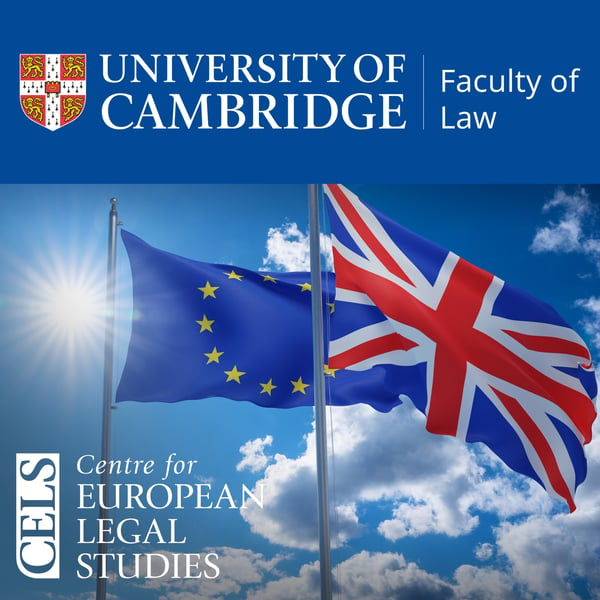'Digital Empire or Fiefdoms? The Role of 'the EU' as a Digital Power': CELS Seminar
Cambridge Centre for European Legal Studies (CELS) Podcast
Faculty of Law, University of Cambridge
0 • 0 Ratings
🗓️ 5 February 2025
⏱️ 38 minutes
🧾️ Download transcript
Summary
Speaker: Professor Orla Lynskey, University College London
Abstract: The EU ‘digital empire’ seeks to align technological development to its rights and values by adopting and promoting a rights-driven model of technological regulation. Bradford’s influential characterisation of EU digital strategy is credible when one maps the array of legal ‘Acts’ applicable to data, digital markets, digital services and AI adopted by the EU in recent years, all of which are without prejudice to the EU data protection law. Yet, when one delves deeper, the EU’s commitment to rights-based regulation of the digital sphere is not iron-clad. Rather, as we demonstrate through an empirical analysis of the European Commission’s adequacy decisions over a quarter of a century (1999-2024), there are clear divergences amongst EU institutions about the balance to be struck between fundamental rights and economic interests. Such divergence suggest the EU might more accurately be characterised as an amalgamation of fiefdoms rather than an empire. This inter-institutional dynamic is relevant to the legitimacy of EU actions in the digital sphere and may foreshadow the future direction of EU data law.
For more information see:
https://www.cels.law.cam.ac.uk/weekly-seminar-series
Transcript
Click on a timestamp to play from that location
| 0:00.0 | So good afternoon, everyone, and welcome both to those who are here in person and those who are |
| 0:07.2 | joining us online to this first SELD lunchtime seminar of the term. |
| 0:13.1 | It gives me the greatest pleasure to introduce our speaker today, Professor Orla Linsky, |
| 0:19.4 | who is Professor of Law and Technology at University |
| 0:23.3 | College London and a long-standing friend of this faculty. So Orla studied at Trinity College |
| 0:30.6 | Dublin, the College of Europe, and in 2009 came to Cambridge to do her or to write her PhD on data protection. |
| 0:40.0 | At the time, that was an emergent area of law, and Orla was one of the very first to work |
| 0:47.1 | in that area. |
| 0:48.8 | And since then, she has become a leading light in the field of EU digital law and policy, as it is confirmed |
| 0:56.9 | by her meteoric academic career. So immediately, after the completion of her a doctorate, |
| 1:04.7 | she secured what is today an assistant professorship at the LSC. She then became an associate professor, and last year she was |
| 1:13.5 | appointed to the chair of law and technology at UCL. She has published very widely, including a |
| 1:21.0 | monograph by OUP in 2015 and numerous articles in top journals in the field. So as you can imagine, we have a wonderful |
| 1:31.1 | seminar in store for us today. And Orla is going to talk today about something that sounds |
| 1:38.0 | very enticing, digital empire or digital fiefdoms, the role of the EU as a digital power. |
| 1:47.9 | And without any further delay, I'm going to leave the floor to Orla. |
| 1:52.1 | Thank you. |
| 1:53.1 | Thank you, Albertina, and thank you, Sophie, for the invitation to offer a lunchtime seminar. |
| 1:59.6 | And thanks for everyone here for giving up your lunchtime to attend. |
| 2:04.6 | So today, you'll notice that I've changed the title for the talk slightly from the one advertised |
| 2:11.0 | to focus a little bit more narrowly on the right to data protection in the EU. |
| 2:17.4 | But before I get started, let me tell you a little bit about the impetus for this work. |
... |
Please login to see the full transcript.
Disclaimer: The podcast and artwork embedded on this page are from Faculty of Law, University of Cambridge, and are the property of its owner and not affiliated with or endorsed by Tapesearch.
Generated transcripts are the property of Faculty of Law, University of Cambridge and are distributed freely under the Fair Use doctrine. Transcripts generated by Tapesearch are not guaranteed to be accurate.
Copyright © Tapesearch 2025.

